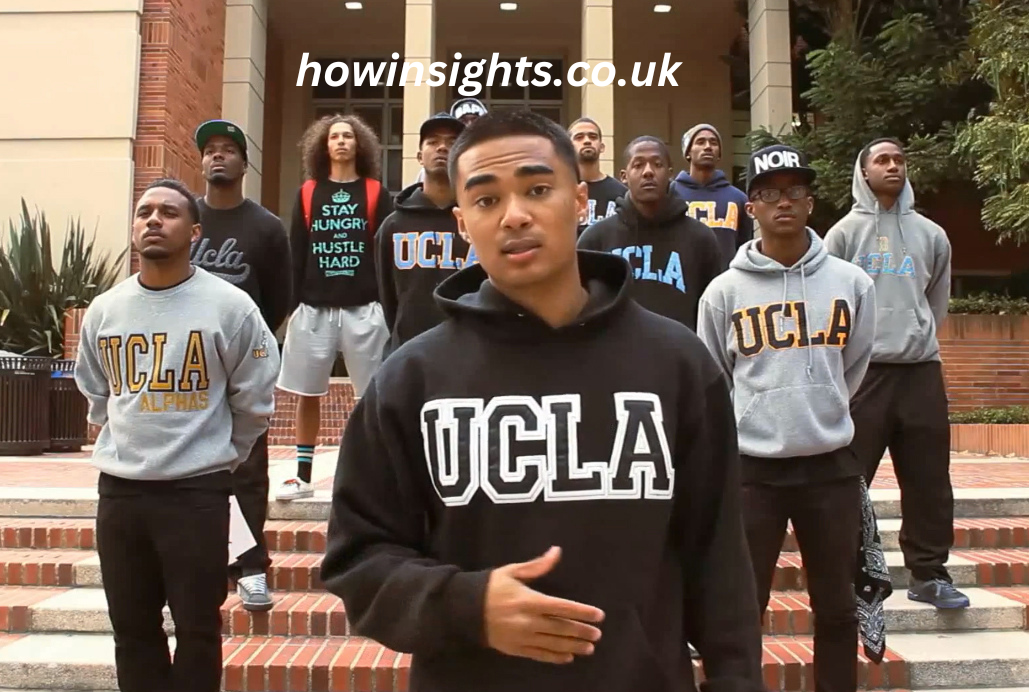Introduction
In the realm of tech innovation and hackathons, Yahoo Hack-U 2011 at UCLA remains a standout event that not only fostered creativity but also showcased the potential of collaborative programming. This event brought together students, tech enthusiasts, and professionals alike, united by a shared passion for coding, problem-solving, and pushing the boundaries of what technology could achieve. Hosted by Yahoo, a major player in the tech world, the Hack-U event was designed to inspire the next generation of developers and entrepreneurs, encouraging them to work together to create innovative applications and solutions within a limited timeframe.
In this blog, we’ll explore the highlights of Yahoo Hack-U 2011 at UCLA, the impact it had on the participants, and the lasting legacy it left in the tech community. We will also delve into the importance of hackathons like this, and how events like Yahoo Hack-U 2011 at UCLA continue to shape the future of tech innovation. Whether you’re an aspiring coder or someone interested in the tech world, this comprehensive guide will give you insights into why Yahoo Hack-U 2011 at UCLA was such a pivotal event.
The Concept Behind Yahoo Hack-U

Before diving into the specifics of Yahoo Hack-U 2011 at UCLA, it’s essential to understand what Yahoo Hack-U represents. Hack-U, short for Hack University, was Yahoo’s initiative to engage with university students across the U.S. by hosting hackathons. These events provided students with a platform to flex their coding skills, collaborate on projects, and learn from industry experts. The goal was not only to foster innovation but also to build a strong connection between Yahoo and the budding developers who would shape the tech industry’s future.
Hackathons like offered participants a unique opportunity to work in teams and build a functional product, prototype, or application within a constrained time—usually 24 to 48 hours. This format encouraged out-of-the-box thinking, rapid development, and intense collaboration, pushing participants to use their coding knowledge and creativity to solve real-world problems.
The Experience of Yahoo Hack-U 2011 at UCLA
Yahoo Hack-U 2011 at UCLA was no ordinary hackathon. Hosted at one of the leading universities in the world, the event attracted some of the brightest minds in computer science and engineering. The vibrant atmosphere of UCLA, coupled with the cutting-edge facilities provided by the university, set the perfect stage for an unforgettable hackathon experience.
1. Kickoff and Introduction to Yahoo APIs
The event kicked off with an exciting introduction to Yahoo’s various APIs (Application Programming Interfaces) and tools, which were made available for the participants to use in their projects. Yahoo’s API suite at the time included everything from maps and search functions to real-time weather and finance data. These APIs provided participants with a robust set of resources to build innovative applications that could tap into Yahoo’s massive data infrastructure.
The introduction to these APIs was not only educational but also served as an inspiration for many teams to think beyond traditional app development. Teams were encouraged to leverage Yahoo’s tools to create unique, scalable solutions that could make a real impact.
2. The Intensity of the Hackathon
As with any hackathon, time was of the essence during Participants worked tirelessly around the clock, coding, troubleshooting, and fine-tuning their projects. The intense energy in the room was palpable, with teams bouncing ideas off each other, solving coding challenges, and often running on nothing but coffee and adrenaline.
This immersive environment fostered creativity, and many participants found themselves developing skills far beyond their initial expectations. The time constraints forced participants to think quickly, prioritize features, and learn new tools on the fly—all valuable skills in the fast-paced world of software development.
3. Mentorship and Networking Opportunities
One of the most valuable aspects of Yahoo Hack-U 2011 at UCLA was the mentorship provided by Yahoo engineers and industry experts. These professionals were available throughout the event to offer guidance, answer technical questions, and provide feedback on project ideas. For many participants, this direct access to experienced professionals was a highlight of the event, offering them a glimpse into the world of tech development at a leading company like Yahoo.
Beyond the technical advice, the event also provided ample networking opportunities. Participants could connect with their peers, Yahoo employees, and other industry insiders, forging relationships that could lead to future collaborations, internships, or even job offers.
4. The Final Presentations and Judging
At the conclusion of the hackathon, each team had the opportunity to present their project to a panel of judges, which typically included Yahoo engineers, UCLA faculty members, and other tech industry leaders. The final presentations were a chance for teams to showcase their hard work, creativity, and technical prowess, as well as to explain the real-world applications of their projects.
The judging criteria focused on several factors, including the innovation behind the idea, the functionality of the product, the complexity of the code, and the potential for real-world impact. Teams that stood out were those that not only built technically sound products but also demonstrated a clear vision for how their application could solve problems or improve existing systems.
5. Winners and Standout Projects
While every team brought something unique to the table, there were a few standout projects at Yahoo Hack-U 2011 at UCLA that left a lasting impression. The winning projects typically combined technical complexity with creativity, offering solutions that were both innovative and feasible.
For example, some teams built applications that utilized Yahoo’s weather APIs to create real-time weather prediction tools, while others focused on social media integration, using Yahoo’s search APIs to develop platforms for aggregating news and content from across the web. These projects not only demonstrated technical skill but also showed a deep understanding of user needs and market demand.
The winning teams received prizes, recognition, and in some cases, the opportunity to further develop their projects with Yahoo’s support.
The Impact of Yahoo Hack-U 2011 at UCLA

Yahoo Hack-U 2011 at UCLA left a lasting impact on its participants and the broader tech community. Here are a few key takeaways from the event:
1. Fostering Innovation and Creativity
One of the most significant impacts of Yahoo Hack-U 2011 at UCLA was the way it encouraged participants to push the boundaries of innovation. Hackathons are known for their ability to inspire creativity, and this event was no exception. Many participants left the event with a newfound confidence in their ability to take an idea from concept to execution in a short amount of time.
2. Building a Stronger Tech Community
Events like Yahoo Hack-U 2011 at UCLA help to build stronger connections within the tech community. By bringing together students, professionals, and industry experts, the event fostered collaboration and knowledge sharing. Participants not only gained new technical skills but also expanded their professional networks, creating opportunities for future projects and career advancement.
3. Introducing New Technologies and Tools
For many participants, Yahoo Hack-U 2011 at UCLA was an introduction to Yahoo’s powerful APIs and developer tools. By using these tools in real-world applications, participants gained valuable experience that they could carry into their future careers. Additionally, exposure to new technologies and frameworks helped participants stay up-to-date with the latest trends in software development.
4. Real-World Applications and Problem Solving
Hackathons like Yahoo Hack-U 2011 at UCLA emphasize the importance of solving real-world problems through technology. Many of the projects developed during the event had practical applications, from improving user experience on websites to creating tools that addressed social or environmental issues. This focus on real-world problem solving made the event not just a technical challenge, but a meaningful exercise in innovation.
Conclusion
Yahoo Hack-U 2011 at UCLA was more than just a hackathon—it was a celebration of innovation, collaboration, and the limitless possibilities of technology. The event brought together some of the brightest minds in computer science, providing them with the tools, mentorship, and inspiration to create something truly remarkable. For many participants, it was a defining moment in their tech careers, sparking a passion for coding and problem-solving that would last a lifetime.
As we look back on Yahoo Hack-U 2011 at UCLA, it’s clear that the event played a key role in shaping the future of tech innovation. Whether through the connections made, the skills learned, or the projects developed, the impact of this hackathon continues to resonate within the tech community. It stands as a testament to the power of collaboration and the importance of providing platforms for young developers to showcase their talents.
For anyone interested in coding, innovation, or simply the thrill of creating something new, hackathons like Yahoo Hack-U 2011 at UCLA offer an unparalleled opportunity to learn, grow, and make a lasting impact on the world of technology.
